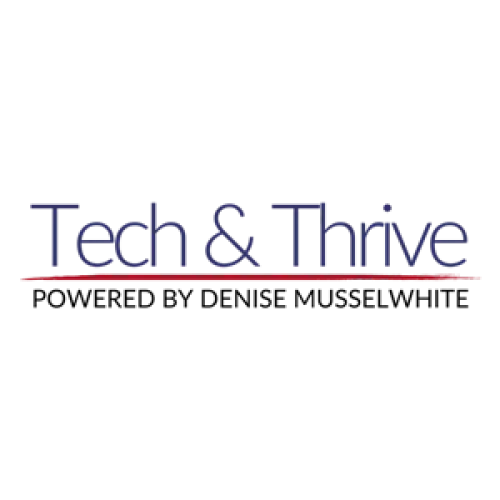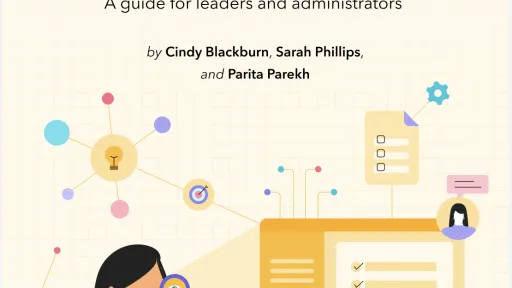Leading technology in independent schools can often feel like building the plane while flying it. You solve problems behind the scenes, keep everything running, and yet when it comes to your own growth as a leader, you hit an invisible ceiling.
Maybe you know this feeling well: you walk away from a performance review hearing, “You’re doing great, keep it up,” and yet you feel frustrated and wonder, What’s next? How do I actually grow?
If this sounds familiar, you are not alone.
Too many independent schools leave feedback to chance, offering praise without clear guidance or formal systems to support growth. This creates confusion, weakens trust, and leaves even the most capable tech leaders feeling stuck in place. But it does not have to be that way.
From my work with leaders across independent schools, higher ed, and the edtech industry more broadly, I have seen that growth demands more than just new skills. It requires honest, clear, and regular feedback that builds trust and offers concrete steps forward. Without it, motivation fades, and leadership potential remains locked behind walls we did not build.
Building Trust Through Strengths-Based Team Insights
One approach that has transformed tech leadership in independent schools is our Thrive Together experience. A strengths-based team approach involves a strengths-based personality assessment that highlights how each team member contributes uniquely, without labels or judgment.
These insights open the door to honest and respectful conversations. In my work with technology teams and leaders, I’ve consistently found that when individuals feel truly seen and valued for their unique strengths, trust grows. That trust becomes the foundation for meaningful feedback and real leadership development.
This mirrors what Psychologist Carol Dweck describes in her work on growth mindset: people thrive in environments where they are recognized not just for what they’ve achieved, but for their capacity to grow.
This trust changes everything. It improves individual leadership and transforms team collaboration, ownership, and innovation.
Why Feedback Matters Now More Than Ever
Independent schools work with tight budgets and high expectations. Every leader’s growth ripples across the whole community. Clear feedback acts like fuel for leadership—it creates psychological safety, encourages risk-taking, aligns effort with mission, and builds confidence.
Research shows that well-designed feedback loops do not stifle innovation. Instead, they empower leaders to act boldly and with autonomy.
Tech leaders are especially attuned to clear metrics and logical problem-solving. When feedback is vague or overly positive, it creates more questions than answers. What exactly should change? How should leadership look different? Tech leaders thrive with specific, balanced conversations that challenge and support them at once.
As I often remind the leaders I coach, people grow when they are challenged and supported at the same time. Effective feedback delivers on both.
A Simple Tool to Coach Growth Every Day
Here’s a simple rubric from our work with tech teams that helps leaders observe and coach growth in real time:
|
Observed Behavior |
Desired Behavior (Aligned with Trust & Execution) |
Coaching Example |
|
Avoids giving or receiving feedback |
Provides peer-to-peer feedback regularly |
“I'd like you to start offering feedback during our team meetings. What’s one thing you can share?” |
|
Blames others when things go wrong |
Accepts responsibility for mistakes |
“I noticed you mentioned another department when things didn’t go as planned. How can we own this?” |
|
Does not share updates or progress with the team |
Tracks and communicates progress |
“Can you share an update with the team by Friday so everyone stays informed?” |
This rubric offers a non-judgmental, strengths-based way to observe team and individual dynamics and provide specific coaching that fosters growth.
Download an Expanded Resource here: Team Effectiveness Self-Assessment & Action Planning Guide.
Research-Backed Strategies to Close the Feedback Gap
Drawing from education, business, and engineering, these proven strategies help tech leaders build strong feedback habits:
- Experiential Learning: Practice giving and receiving feedback in real scenarios to build confidence and emotional control.
- Cross-Functional Collaboration: Working across departments exposes leaders to different communication styles and builds empathy.
- Coaching and Mentorship: Personalized coaching equips leaders with practical tools, while peer mentoring offers ongoing support.
- Leadership Identity Development: Moving from “technical problem-solver” to “people developer” takes courage but is key to growth.
- Psychological Safety: Creating a culture where vulnerability is accepted encourages honest, judgment-free conversations.
The Return on Impact (ROI) of Investing in Feedback and Coaching
Leadership coaching is not a luxury. It delivers measurable returns. In fact, coaching can return up to seven times the initial investment through improved performance, engagement, and retention.
For independent schools, attracting and keeping diverse talent is critical. Clear and supportive feedback loops build trust, boost engagement, and unlock leadership potential that drives the school forward.
How to Get Started Today
Here are simple steps to begin growing leadership capacity right now:
- Download the self-assessment to see where you and your team are.
- Train senior leaders in clear feedback techniques like “Situation-Behavior-Impact” and “Start-Stop-Continue” to make feedback actionable.
- Encourage regular, two-way feedback conversations instead of relying only on annual reviews.
- Create opportunities for cross-department collaboration so leaders experience diverse perspectives.
- Invest in coaching tailored to tech leaders’ unique challenges, focusing on emotional intelligence and adaptive leadership.
- Foster psychological safety where honest and sometimes difficult conversations are welcomed and supported.
Independent schools need leaders who can navigate complexity with empathy, clarity, and confidence. That journey starts with feedback—not as a one-way critique but as continuous, trust-building dialogue.
If you are ready to unlock the full leadership potential of your tech teams, let’s connect and explore how clear, actionable feedback grounded in trust can transform your school culture.
Reach out at techandthrive.com




